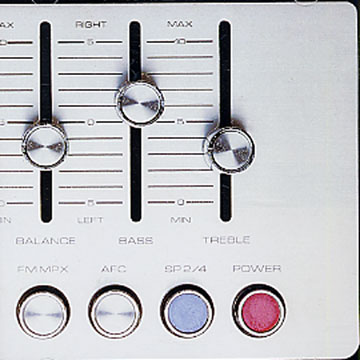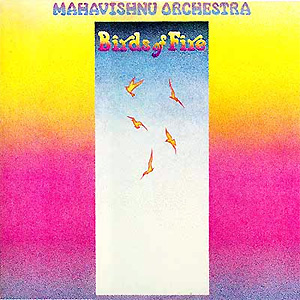J.J. Johnson once remarked, "Jazz is restless. It won't stay put and it never will." It’s been this way since the beginning: the roots of jazz lay in a handful of musical traditions from Africa and Europe, as well as drawing on the blues, ragtime, and pop. Stylistic developments like bop, fusion, third stream, and soul jazz came about in a similar fashion, combining elements of other musics in the context of established jazz norms. World fusion, or cultural fusion, is a flexible subgenre that incorporates ethnic or non-Western musics into the construct of jazz music. It also works the other way around, and ethnic or non-Western musics which include jazz in their forays may be described by the term. If you like coffee, think of cultural fusion as a caffe americano or a long black. The ingredients are the same, hot water and espresso, but the order of their combination creates two entirely different beverages (although no one working at Starbucks seems to know the difference). Works of cultural fusion are no less stimulating than either of these drinks. If you’re looking to expand your listening horizons, try some of these exciting, genre bending titles.
A look at the lineup explains why The Intercontinentals is a good title. Leader and guitarist Bill Frisell, violinist Jenny Scheinman and multiinstrumentalist Greg Leisz bring their experience in American jazz and roots music. Also present are Malian guitarist and percussionist Sidikki Camara, Brazilian guitarist Vinicius Cantuaria, and Macedonian vocalist and oud player Christos Govetas. The melodies are smokey and mysterious, peppered by contributions of the players who reinvent the blues with improvisations of exciting texture and instrumentation. Listening feels like a midnight drive through an eerily familiar landscape and while you know the point of departure, the destination is uncertain. As the album meanders it stays accessible, deliciously soaked in reverb and governed by strong musicality. It relies on the players for its charm, but the focus is removed from any one solo voice and placed on group interplay, creating an interwoven tapestry that shimmers on the surface, unfolding to reveal new stylistic surprises.
Rabih Abou-Khalil – Bukra (1988)
Abou-Khalil is a Lebanese oud player whose work bridges the gap between American jazz, European classical, and traditional Arabic music. Teaming up with alto sax Sonny Fortune, bassist Glen Moore, and percussionists Ramesh Shotham and Glen Velez, Bukra departs immediately for new territories of cultural fusion. The opener “Fortune Seeker” inspires equally the hypnotic vision of a Bedouin caravan or dark nightclub. Don’t miss Fortune’s screaming, evocative introduction to “Kibbe,” or the sliding, pensive bass work by Moore on any track. Percussion plays a strong role in the course of each composition, but never dominates improvised sections. The album closes with some introspective and beautiful oud work by Abou-Khalil. The only downside to Bukra is that it ends too soon.
Mahavishnu Orchestra – Birds of Fire (1973)
After recording benchmark electric jazz-rock fusion with Miles Davis, John McLaughlin formed Mahavishnu Orchestra to bring his interests in jazz, funk, and Indian music to new heights. Birds of Fire is the second LP issued by the original lineup, and it best showcases the concepts the group was exploring. Furious energy, solos seamlessly divided between band members, and a melding of international influences in original compositions are the order of the day. Listen to “One Word” for the band’s ultimate statement, a 5-way musical argument of colliding meters and self-aggrandizing phrases. With this kind of energy, it’s no wonder the band broke up so soon. If Mahavishnu Orchestra was a bright star, then Birds of Fire was its supernova. A thing so brilliant simply couldn't last. If I had to pick, I'd take some of the later members of Mahavishnu over the players in this lineup, for instance, Stanley Clarke over Rick Laird (I know! Saying so is blasphemy). But it's a damned hard band to beat on any level, and one of the greatest lineups ever assembled for any type of music. It's no wonder that Birds of Fire became a crossover hit with rock audiences.



No comments:
Post a Comment